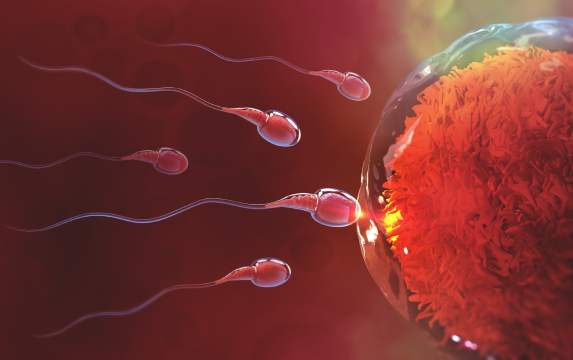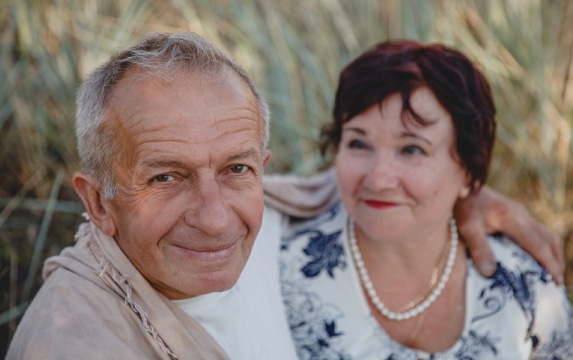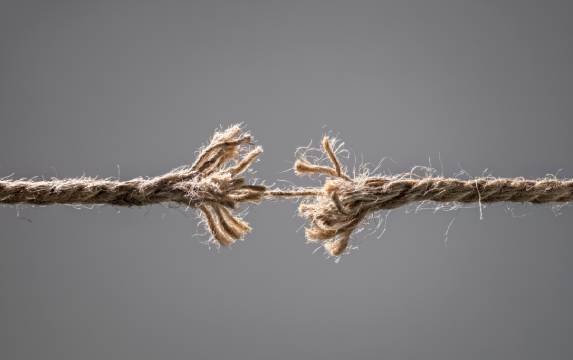Low libido is a prolonged lack of interest in sexual activity (fantasies, masturbation, sexual thoughts, response to sexual stimuli from the male or female partner). It is important to distinguish between a lack of interest in having intercourse that is a temporary condition which could continue, for example during a period of high stress or depression, and a situational lack of libido that is connected with a particular event, such as a woman after she has given birth.
It is natural and common to occasionally lose interest in having intercourse, and the more it is treated with understanding and acceptance, the likelihood of libido returning will be faster.
As a sexologist, many couples come to me with a difference in their respective libidos. The common situation is that the man want to more than the woman, although there are no shortage of situations where it is the opposite. In this situation, couples mainly come for treatment with the man saying “she has no libido, she never wants to have sex”, while the woman lends weight to this opinion saying “I think I am asexual; he wants sex all the time, and I really don’t.” In other cases, when the man does not show interest in sex, the common statement is: “He just isn’t attracted to me like he used to be,” or “he doesn’t get an erection from me.”
Investigating this during the treatment, it arises that the woman does have a libido, just not to the extent that her partner has, thus creating a cycle where he always initiates it, and for the most part, she rejects him. This cycle reduces her libido even further, and this fixed state even increases the gulf between them.
In order to check whether you are suffering from a reduced libido, you are advised to read the article on decreased libido in men .
Then, after we have explained what a lack of libido is (or what is not libido), let’s look at the common reasons that cause it.
Low testosterone
Testosterone is responsible for building muscle and mass and bones, and encouraging the production of sperm. Up to a certain point, testosterone levels also impact your libido.
The normal level of testosterone changes throughout life and is influenced by stressful events, age, health status and lifestyle. From the age of 40 and up, we experience a decrease in the level of testosterone, and this trend is influenced by genetics, nutrition, lifestyle conditions and more. In cases where the decrease in testosterone is drastic, it could be more so than what is normal, and this requires medical consultation.
If you suffer from a decrease in libido, it is recommended that you contact your family practitioner or a urologist to check your testosterone level via a simple blood test.
Medicines
Testosterone level can sometimes be influenced by used of medicines, such as
- Chemotherapy or radiation treatment
- Hormonal treatment of prostate cancer
- Analgesics such as morphine
- Psychiatric medicines and sleeping pills
- Certain medicines for indigestion or reflux problems
- Anabolic steroids (for increasing muscle mass)
- Anti-depressants and anti-anxiety medicines (SNRI/SSRI)
- Often, problems in sexual functioning indicate other illnesses in the body which are yet to be discovered, and early discovery of them is likely to assist in dealing with the illness, and even in saving life
An additional hormonal reason is a disturbance in the functioning of the Thyroid gland.
Depression, anxiety and Post Traumatic Stress Disorder (PTSD)
Each one of these, and obviously the combination of the three of them together, could definitely cause damage to the libido and sexual functioning. In the thesis I researched for my clinical Masters Degree, I assessed the connection between post-trauma to problems of sexual functioning and problems in partnerships where one is a combat soldier. In my research work, I found a significant connection between post-trauma and a decrease in the quality of partner connection and quality of sex life. The security reality in Israel, with a large number of security incidents, operations and wars, has given rise to difficulties of many combat soldiers surviving those events; they have PTSD, and some have not even been diagnosed as such. After “Zuk Eitan”, men suffering from PTSD came to me at the clinic, reporting a significant decrease in libido following their regular military service and reservists’ duty. Although for some of them the nightmares and sleeping difficulties had abated, their libidos remained low.
Depression and anxiety – depression and anxiety change the whole perspective of a person. For example, a person who is depressed generally loses interest in life and that includes interest in sex.
Did you know that anxiety is the most common mental disorder in the USA? 18%! 40 million adults over the age of 18 in the population suffer from it (according to the US Organization for Depression and Anxiety) [1]. Especially now, with COVID19 in the background, we see a sharp increase in the number of people suffering with anxiety and depression and an increase in the use of anti-depressants and anti-anxiety medicines.
Chronic diseases
When a person feels unwell due to the symptoms of a chronic illness, it is likely that having sexual intercourse will be of low priority in his daily routine. There are chronic diseases that even cause a decrease in fertility, such as cancer. There are illnesses that are likely to directly influence not just libido but also sexual functioning, such as diabetes, obesity, hypertension, high cholesterol, chronic failure of the lungs, liver or kidneys.
Even if you are suffering from a chronic illness that causes damage to sexual function, you can still enjoy a fulfilling and close sex life. Sexuality has many different faces. If you don’t know how, go for a sexual consultation and obtain practical tools for implementation at home.
Sleep disorders
Did you know that sleep influences the size of the tests as well as the production of testosterone? As I explained previously, a decrease in testosterone causes a decrease in libido. [2] has found that a third of the men suffering from sleep disorders, report low sexual activity and libido.
Stress
Prolonged or even short-term emotional stress can cause a decrease in testosterone and/or damage and stenosis (narrowing) of the arteries. Arterial stenosis is causes damage to blood flow, something that can also cause erectile problems. Modern and intensive lifestyles cause a lot of stress. Stress is connected to economic status, career, health, relationships, family and more. It is recommended that you adopt habits such as physical activity, yoga and meditation, that could decidedly ease and release stress.
Aging
Levels of testosterone are highest in one’s teens, and from that time, there is a decreasing trend in testosterone as one ages. An expression of this is also damage to the quality of sleep, decrease in flow and sexual function is also influenced by it. For the majority, older people will have greater difficulty in achieving orgasm or maintaining arousal during a sexual encounter. There’s no need for desperation, the correct training could help for continued enjoyment when older.
There are many other factors that influence libido that we do not have the space to detail them, but I will flag up a few of the more important ones: alcohol and drugs, too much/little sport. Yes, even excess sport can cause a decrease in the level of testosterone.
Two additional factors that we will devote a separate article to, are the effects of the connection between the partners and the effects of low confidence and self-esteem.
To conclude, I will elaborate a little about the “vicious circle” that appears due to untreated low libido: low libido can cause extreme nervousness in men. Low libido can cause a negative emotional and physical cycle of reactions that generates more difficulty to the point of performance anxiety that is expressed in the difficulty to get and erection or maintain one during sexual contact. Performance anxiety can cause men to have general anxiety about sex, and even avoidance. Avoidance can cause stress in partnerships, as well as distancing, which can further damage self-confidence and libido, which in turn, can cause depression; the cycle gets worse and worse.
Recommendations: if you are experiencing low libido, go to the doctor to do comprehensive general tests. If everything is normal, or if in parallel you also want to go to a sex therapist to obtain the tools needed to reawaken the libido and experience a fulfilling sex life, that is also possible and a good idea.
[1] Cho JW & Duffy JF. (2018). Sleep, sleep disorders, and sexual dysfunction.
[2] https://adaa.org/understanding-anxiety/facts-statistics
The Company hereby clarifies that the information contained on the website is for informational purposes only, and is not intended to be a substitute for professional medical and healthcare advice, and does not constitute medical advice or opinion. Always seek the advice of your physician or other qualified health provider with any medical condition or question you may have regarding a medical condition.





